Introduction to the Cambodian Real Estate Market
The Cambodian real estate market has garnered significant attention from international investors over the past decade. Rapid economic growth and urbanization have led to the development of a vibrant property sector, making it a prime location for foreign investment. With a GDP growth rate consistently above 6% and a burgeoning middle class, Cambodia presents a unique opportunity for those looking to invest in real estate.
One of the most enticing aspects of the Cambodian real estate landscape is its relatively low property prices compared to neighboring countries in Southeast Asia. This affordability, coupled with increasing demand for residential, commercial, and industrial properties, paves the way for promising returns on investment. The capital city, Phnom Penh, is particularly noteworthy, witnessing thriving real estate developments, including modern condominiums, retail spaces, and hospitality projects. These advancements are fueled by both domestic and international interest, which has continued to grow as economic conditions improve.
Add to this the improving infrastructure, including new roads, airports, and other facilities, and the attractiveness of Cambodia as a real estate investment destination becomes more evident. The government has also implemented various policies to attract foreign investors, such as easing restrictions on property ownership for foreigners. This openness, combined with the potential for appreciation in property values as the economy continues to expand, makes Cambodia a compelling choice for those looking to enter the real estate market.
In this comprehensive guide, we will explore the key aspects of buying real estate in Cambodia as a foreigner, detailing everything from residential options to legal considerations. Understanding the framework of the Cambodian real estate market is essential for navigating the various opportunities available, setting the stage for successful investments.
Legal Framework and Requirements for Foreigners
Foreigners interested in purchasing real estate in Cambodia must navigate a specific legal framework designed to regulate property ownership. One of the primary requirements is that buyers must possess a valid passport. This document serves not only as proof of identity but also as a critical component of the transaction process. Without it, engaging in any legal agreement or contract becomes significantly challenging.
In Cambodia, the law permits foreigners to own properties, albeit with certain restrictions. For instance, foreign nationals can legally own up to 70% of the units in a condominium development, while land ownership typically remains restricted to Cambodian citizens. This understanding is crucial for foreign buyers wishing to invest in real estate, as it delineates the boundaries of ownership rights and responsibilities.
Moreover, conducting due diligence is highly advisable before finalizing any property transaction. Engaging with local legal professionals who are well-versed in Cambodian property law ensures that all necessary regulations are adhered to. These experts can provide invaluable assistance by helping foreign investors navigate complex legal structures, such as lease agreements and contract obligations. Their guidance is essential in identifying potential pitfalls, including outstanding debts or encumbrances on the property.
Understanding the necessity for a legal representative cannot be overstated, as they will assist with the documentation required for legal transfer and ensure compliance with local laws. Additionally, foreign investors should remain vigilant regarding any changes to legislation affecting property ownership. By staying informed and consulting with professionals, buyers can secure their investments and fully enjoy the benefits of their real estate ventures in Cambodia.
Restrictions on Land Ownership
Foreign ownership of land in Cambodia is subject to specific regulations that foreign investors must navigate. The primary restriction is that foreigners are prohibited from owning land titles outright. This legal framework stems from the Cambodian constitution, which restricts land ownership to its citizens. As a result, those who intend to invest in real estate must explore alternative pathways to acquire property.
One such avenue is the ‘leasehold’ agreement, which allows foreigners to lease land for an extended period, typically up to 99 years. Through this arrangement, investors can effectively utilize the property without holding the title. While leasehold agreements provide a feasible option for foreigners, they also come with stipulations that require careful consideration. It is essential to negotiate the terms of the lease diligently, ensuring secured rights for the duration of the agreement.
Additionally, the limitations on land ownership can significantly influence investment choices. Potential investors must weigh the benefits of a leasehold model against its long-term feasibility and the implications of Cambodian laws regarding land leases. Foreign investors often face challenges in navigating these legalities, which can lead to concerns about the stability and security of their investments. Therefore, it becomes imperative to seek local legal advice to understand the nuances of the leasehold structures available.
Furthermore, when investing in real estate in Cambodia, it is crucial to remain abreast of any changes in legislation that may affect leasehold agreements or foreign ownership rules. Engaging with reputable agents and legal counsel can help facilitate informed decision-making and mitigate potential risks associated with property investments in the country.
Types of Real Estate Foreigners Can Purchase
Foreigners looking to invest in real estate in Cambodia should be aware of the specific types of properties available to them under Cambodian law. One of the most popular options for foreign buyers is condominiums. According to the Law on Foreign Ownership of Property, foreigners are permitted to own up to 70% of the units in a building that exceeds four stories, known as high-rise buildings. This regulation is particularly appealing to expatriates and investors seeking to stake a claim in Cambodia’s burgeoning real estate market.
To qualify as a “foreigner-friendly” property, a condominium must meet certain criteria outlined by the government. It is essential that these properties are part of a larger development that adheres to the regulations imposed under the Land Law of Cambodia. These laws have been implemented to promote foreign investment while ensuring that local interests are maintained. Consequently, engaging in a property purchase that falls within these bounds may yield favorable conditions and robust investment potential.
In addition to condominiums, foreign buyers may explore other types of properties, such as land leases. Under Cambodian law, foreigners cannot own land outright, but they can secure long-term leases of up to 50 years, with options for renewal. This system allows for substantial control over the land and potential development projects, creating opportunities for commercial investments, resorts, or other ventures.
Foreigners may also consider purchasing property through corporate entities, which can offer a means of land ownership. Establishing a Cambodian company can allow foreigners to own 100% of the land, provided the property is within the company’s business scope. Navigating these regulations can seem complex, but understanding the available options may lead to beneficial investment opportunities in Cambodia’s dynamic real estate landscape.
The Purchasing Process of Real Estate in Cambodia
Purchasing real estate in Cambodia as a foreigner involves several essential steps that ensure a smooth transaction. Understanding the process is vital for avoiding potential pitfalls and for making informed decisions throughout the journey.
Initially, the first step is to conduct thorough research on the Cambodian property market. Foreigners can purchase properties under certain conditions; therefore, identifying the types of properties available for foreign ownership, such as condominiums, is crucial. Utilize resources such as real estate websites, local listings, and reputable real estate agents to find suitable options. Engaging with an experienced agent can facilitate your search and provide valuable insights into property prices and market trends.
Once a property has been identified, securing financing is the next crucial step for many buyers. While cash purchases are common, some may require loans. It is advisable to approach both local banks and international institutions that operate in Cambodia. Each lender may have specific requirements, including income verification, and understanding the terms is vital before proceeding.
Upon confirming financing availability, the next phase involves negotiating the sale with the property owner or real estate agent. Effective negotiation can greatly influence the final purchase price, so it is essential to conduct a comparative market analysis and be prepared to advocate for your interests.
After executing the negotiation, a sales agreement must be drafted. This document outlines the terms of the sale, including price, payment schedule, and specific conditions. Engaging a lawyer with expertise in Cambodian real estate law can ensure that all legal requirements are met and the contract is legally binding.
Finally, the transfer of ownership is executed at the relevant government office, where the buyer must submit all necessary documents, including the signed sales agreement and proof of payment. Upon successful completion of this step, the buyer receives the property’s title deed, marking the official ownership.
Financing Options for Foreign Buyers
Foreign buyers considering real estate investments in Cambodia have several financing avenues available to facilitate their purchases. Understanding these options is crucial for making informed decisions, as each comes with its distinct advantages and challenges. One of the primary avenues is obtaining loans from local banks. Although Cambodian banks have become more open to lending to foreigners in recent years, it is essential to be aware that they often require substantial deposits, typically ranging from 20% to 50% of the property value. Loan terms can vary widely, generally spanning from 10 to 25 years, depending on the bank and the applicant’s financial profile.
In addition to local bank financing, foreign investors may also explore financing options from international institutions. These institutions can occasionally offer more favorable terms and lower interest rates compared to local banks. However, gaining access to such financing may require a more extensive credit history and higher income verification. Investors should therefore prepare and gather all requisite documentation beforehand. It is advisable to compare these international loans against local options to determine the most suitable financial strategy.
Besides traditional loans, personal investment strategies can also serve as effective means for financing real estate purchases. This may involve drawing on personal savings, leveraging existing investment portfolios, or entering into joint ventures with other investors. Such methods may provide greater flexibility concerning loan terms and repayment schedules. It is imperative to calculate potential return on investment carefully to ensure that the chosen financing option aligns with long-term financial goals.
Understanding interest rates, typical loan terms, and the overall financing process will equip foreign buyers with the necessary knowledge to navigate Cambodia’s real estate landscape successfully. Each financing option presents unique features that should be thoroughly evaluated to find an approach that best suits individual investor profiles.
Potential Risks and Scams to be Aware Of
Investing in real estate in Cambodia can be a lucrative opportunity, but it is crucial for foreign buyers to remain vigilant about potential risks and scams that may arise during the purchasing process. As with many developing markets, Cambodia presents unique challenges for international investors. Understanding these risks is essential to making an informed decision and safeguarding one’s investment.
One of the most common scams targeting foreign investors is the misrepresentation of property ownership. It is not uncommon for sellers to present fake documents or claim ownership of properties that do not belong to them. To mitigate this risk, it is advisable to conduct due diligence, which includes verifying ownership records, title deeds, and property boundaries through the Cambodian Ministry of Land Management, Urban Planning, and Construction. Partnering with a reliable local attorney can also assist in navigating these legal complexities and ensuring that all paperwork is in order.
Another area of concern involves fraudulent real estate agents and developers. Unscrupulous individuals may entice potential buyers with compelling offers and false assurances about profitability. Therefore, it is important to identify reputable agents by checking reviews, asking for references, and confirming their affiliation with a licensed agency. Engaging in thorough background checks helps in recognizing trustworthy professionals who adhere to ethical standards.
Foreign investors should also be wary of any advance payments or deposits that demand immediate financial commitment without a written agreement. Legitimate transactions typically include formal contracts that outline the terms of the sale, providing legal protection for all parties involved. This precaution can prevent unforeseen losses and ensure a smoother transaction process.
Ultimately, being aware of potential risks and scams while buying real estate in Cambodia is essential for foreign investors. Thorough research, diligent verification, and securing legal assistance will significantly reduce vulnerability to fraudulent activities and create a safer investment environment.
Cultural Considerations When Investing in Cambodia
Investing in real estate in Cambodia requires a nuanced understanding of the local culture, which profoundly influences business practices and real estate transactions. The Cambodian culture is steeped in rich traditions and values that shape interactions, decision-making, and negotiations. As such, foreign investors must approach their investment opportunities with cultural sensitivity to foster productive relationships and ultimately enhance their prospects for success.
One essential aspect of Cambodian culture is the emphasis on relationships and trust. Establishing rapport with local partners, government officials, and community leaders is pivotal in navigating the real estate market effectively. It is advised to invest time in relationship building through formal and informal gatherings, where mutual understanding can be developed. This interpersonal connection not only helps in gaining trust but also provides access to local insights and networks, which can be invaluable when making investment decisions.
Moreover, understanding the local mindset is critical. Cambodians often prioritize harmonious interactions and may favor indirect communication styles. Consequently, foreign investors should be observant of social cues and respect local customs during discussions. Patience is also a virtue in Cambodia’s context; negotiations may take time, as decisions often involve multiple stakeholders. Additionally, familiarity with local customs, such as greeting rituals, feasting, and offering gifts, can leave a lasting impression and establish goodwill.
Finally, being aware of the socio-political environment in Cambodia is paramount. The country is experiencing rapid development, which affects various economic sectors, including real estate. However, this growth is accompanied by certain challenges, such as regulatory changes and local land ownership laws. Thus, it is essential to remain informed about these dynamics to make educated investment choices while respecting the cultural framework in which they operate. Embracing this cultural sensitivity can ultimately lead to a more fruitful and harmonious investment experience in Cambodia’s evolving real estate landscape.
Conclusion and Final Tips
Buying real estate in Cambodia as a foreigner presents a multitude of opportunities, but it is essential to approach this endeavor with caution and thorough understanding. The Cambodian property market has witnessed significant growth in recent years, attracting foreign investors drawn to its affordable prices and potential for high returns. However, it is crucial for potential buyers to familiarize themselves with the legal constraints and ownership laws that apply to foreigners. In particular, understanding that while foreigners cannot own land outright, they can securely acquire properties through established legal frameworks—such as leasing agreements and the creation of a Cambodian-owned company—is vital.
Moreover, conducting extensive research is paramount before making any purchasing decisions. Potential buyers should take time to explore various regions within Cambodia, as market dynamics can significantly differ from one location to another. Popular destinations such as Phnom Penh, Siem Reap, and Sihanoukville each offer unique investment opportunities and varying levels of demand. Engaging with local real estate agents who are well-versed in the specific market conditions can provide invaluable insights and streamline the buying process.
Furthermore, it is advisable to seek legal counsel to ensure compliance with local laws and to navigate any potential pitfalls that may arise during the purchasing process. Understanding the financial implications, including taxes and fees associated with property purchases, will also aid in making informed decisions. As always, maintaining an open line of communication and being prepared for negotiations will facilitate a smoother transaction.
In conclusion, navigating the Cambodian real estate market as a foreign buyer requires a careful approach and an informed perspective. By adhering to these key insights and practical tips, one can effectively manage the complexities of buying property in Cambodia, ultimately leading to successful investment outcomes. Thanks for reading.
Check out “|An Overview of Siem Reap”
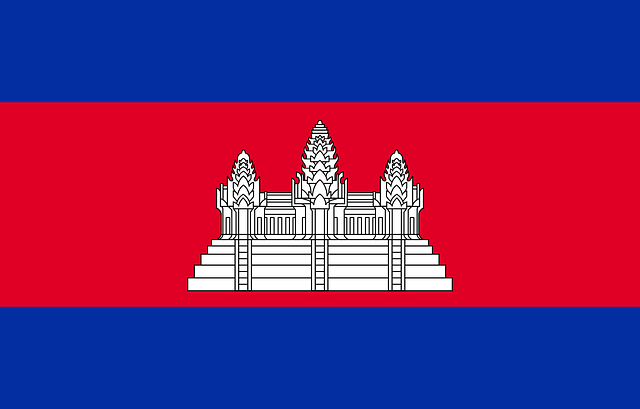
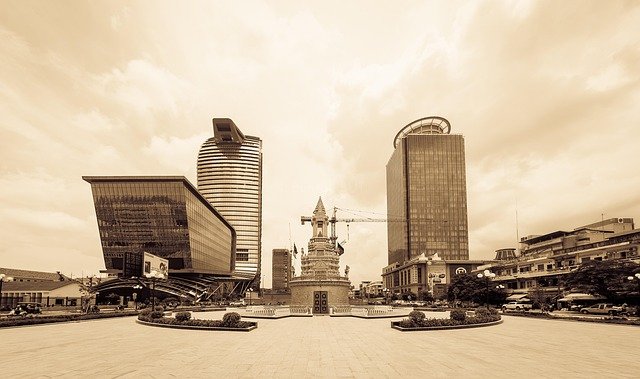
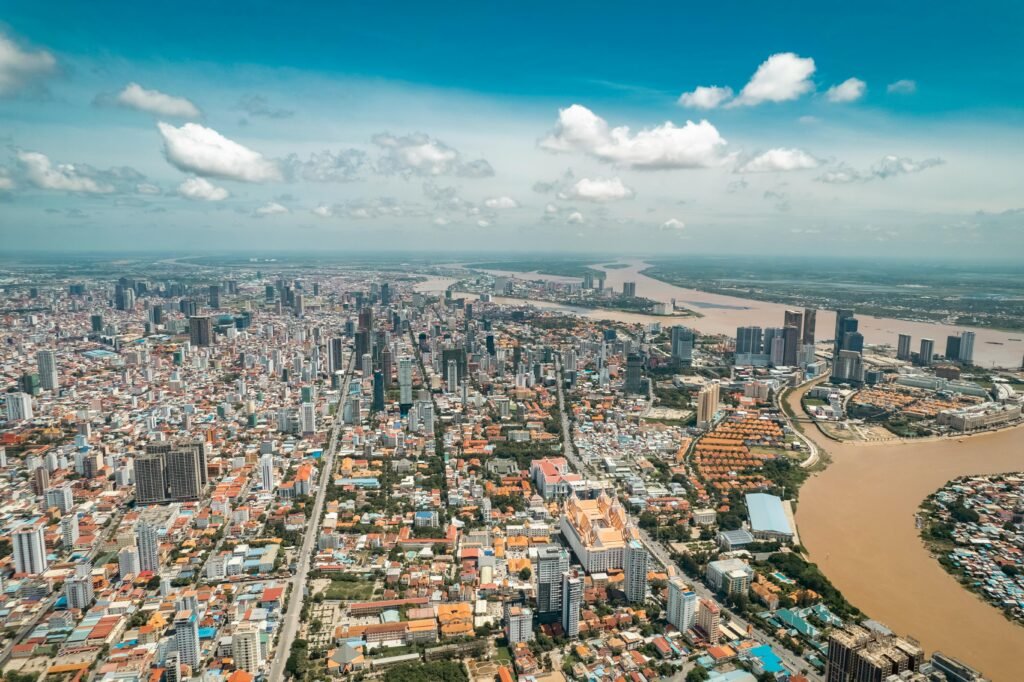
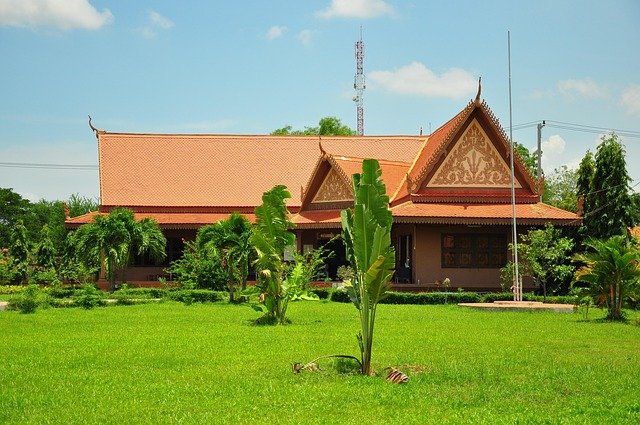
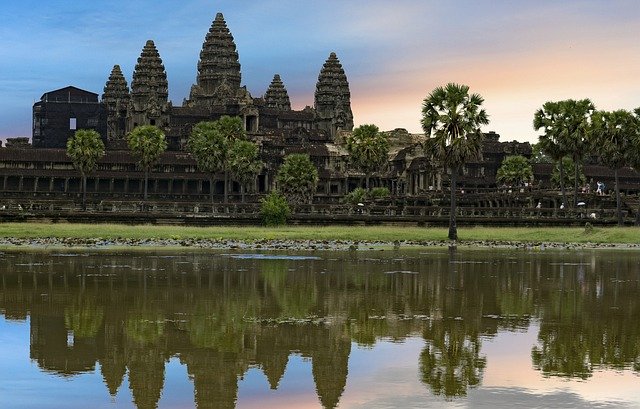
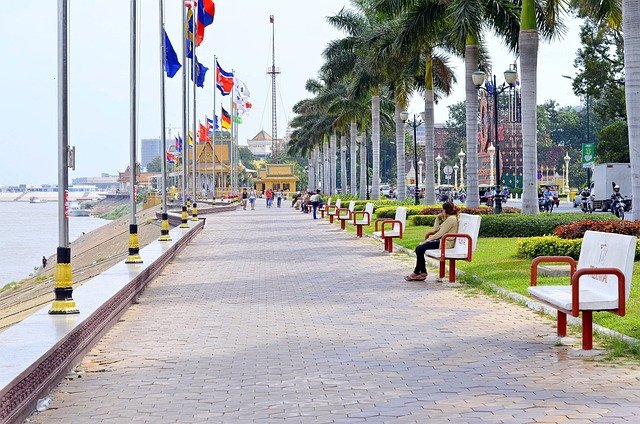

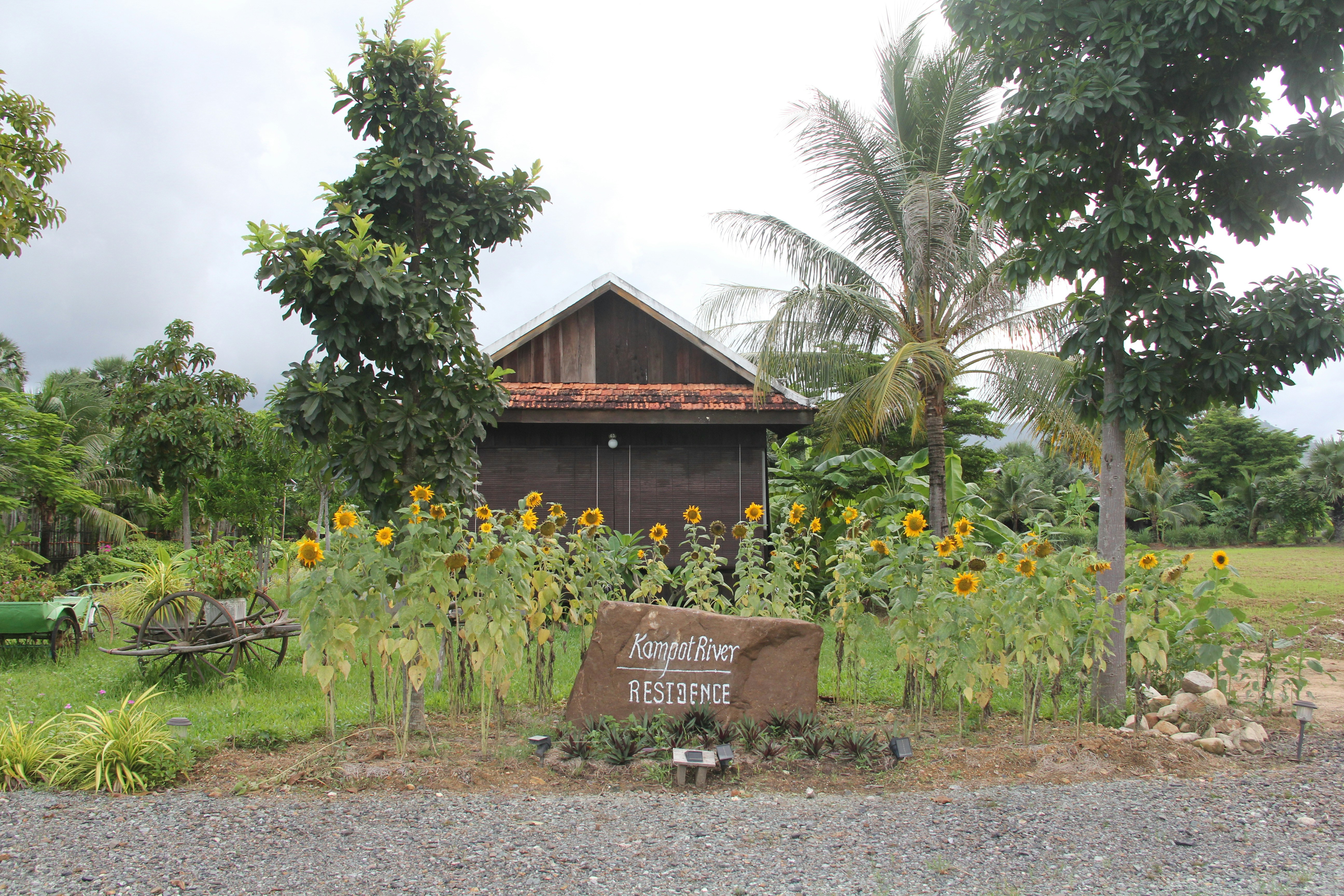



Pingback: The Evolution of the Laotian Language: From Ancient Scripts to Modern Speech
Pingback: Buying Real Estate in Myanmar 2026: Tips, Trends & Insights
Pingback: Cost of Living in Cambodia: A Complete 2026 Guide - Living in Southeast Asia
Pingback: Local Customs in Cambodia: Essential Traditions Every Visitor Should Know - Living in Southeast Asia